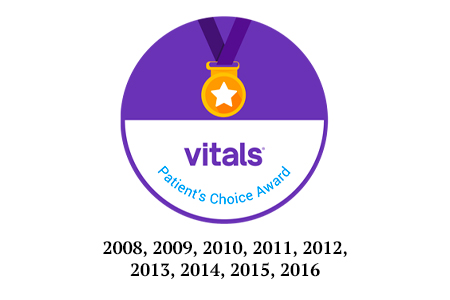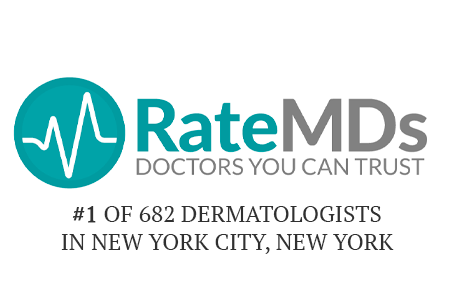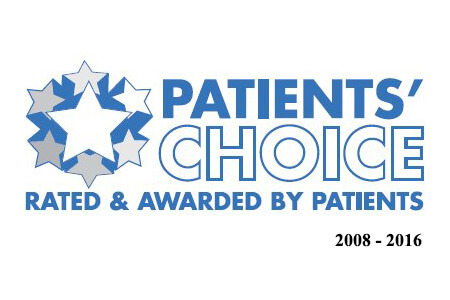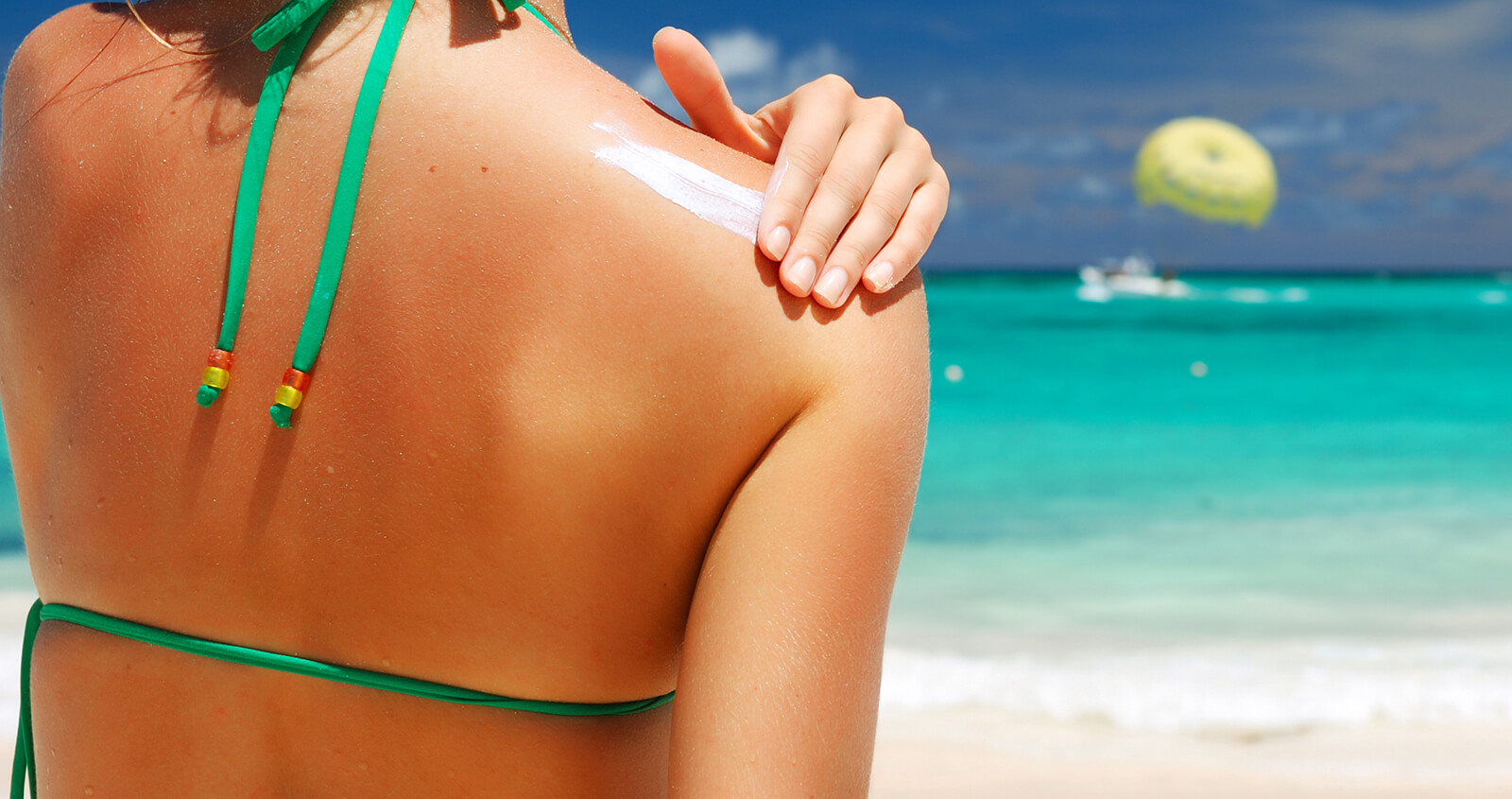Using sunscreen effectively to protect your skin from aging and sun damage
Using sunscreen is like wearing a seatbelt. When you are in a car, wearing a seatbelt helps to keep you safer, but it does not completely protect you and you cannot be reckless while driving. Similarly, wearing sunscreen does not mean that you should spend excessive time in the sun. While sunscreen likely protects against most skin cancers and pre-cancers, researchers are still examining whether sunscreen protects against melanoma, the deadliest form of skin cancer. Below, Dr. Stephen L. Comite, dermatologist at SkinProvement Dermatology New York, provides more information about sun protection and how to effectively use sunscreen to maximize your protection from skin cancer and sun-related aging of your skin.
Minimize your sun exposure and use a high SPF sunscreen
Sunscreen is meant to be used when you must be outdoors and cannot protect your skin with clothing. We recommend using sunscreen with a high SPF (Sun Protective Factor)—when it comes to SPF, the higher the better. A recent study showed SPF 100 to be better than SPF 50; we had previously thought that anything over 30 was not helpful.
Even better than sunscreen, we recommend that you:
- minimize your sun exposure
- avoid mid-day sun
- wear sun protective clothing
Use enough sunscreen and re-apply it frequently
Studies have shown that most people put on much less sunscreen than necessary, so be sure to liberally apply lots of sunscreen. You need at least an ounce of lotion to properly protect your whole body.
Sunscreens need to be applied at least every two hours, or even more often, especially if you are sweating or swimming. Please be aware that a sunscreen cannot claim to be “waterproof” or “sweat-proof,” or be identified as “sunblock.” If a product claims to be water resistant on the front label, it must indicate how much time a person can expect to get the declared SPF level of protection while they are swimming or sweating, based on standard testing–either 40 or 80 minutes.
Broad-spectrum sunscreens are best
Most sunscreen protects against UV-B (Ultraviolet B) rays. Many sunscreens state that they also protect against UV-A (Ultraviolet A) rays, but many do not properly protect against UV-A. Sunburn is primarily caused by UV-B. Both UV-B and UV-A can cause sunburn, skin cancer, and premature skin aging. A broad-spectrum product must have a certain percentage of its total protection against UV-A.
Sunscreens that protect against all types of skin damage from the sun are labeled as “Broad Spectrum” and “SPF 15” (or higher) on the bottle’s front. If a sunscreen product is not broad spectrum or is broad spectrum but has an SPF value between two and 14, it must be labeled with a warning that alerts you to the fact that spending time in the sun increases the risk of early skin aging and skin cancer, and that the product has only been shown to help prevent sunburn and not early skin aging or skin cancer.
We prefer you use sunscreen with either Parsol 1789, avobenzone, titanium dioxide, or zinc oxide. Parsol 1789 (avobenzone) is a specific UV-A protector. Titanium dioxide and zinc oxide are the products that protect against all ultraviolet rays but can sometimes need to be vigorously rubbed in as they can otherwise leave a white, chalky feeling on the skin.
Mexoryl (ecamsule) is an excellent ingredient that protects against UV-A and is highly recommended. This ingredient has been present in sunscreens abroad for many years and was finally approved in the United States in 2006. The product approved is called “Anthelios” and it has a #15 SPF (Sun Protection Factor). One nearby pharmacy that carries it is Pasteur Pharmacy on 34th Street between Park and Madison Avenues.
Helioplex is another technological advance. Present in some Neutrogena sunscreens, it helps to stabilize certain sunscreen ingredients to make them more effective.
Sunscreen formulations
Sunscreens come in many types of formulations such as lotions, gels, lipsticks, sprays and sticks. If you have acne, look for a sunscreen that is non-acnegenic or non-comedogenic. If you have hairy skin, then sprays or gels are preferable. If you prefer to use a daily moisturizer, it can be helpful to find one that has sunscreen in it, but if you spend significant time outdoors, this is not as effective as a preparation that is solely sunscreen. If you are athletic, then sport sunscreen can be helpful, but many do not protect adequately against UV-A rays, so sprays are another option. Sprays seem to be less likely to irritate skin. Another alternative is to use Neutrogena or other sun-sticks around the eyes and lips.
There are also newer powder sunscreens, which are lightweight and made of micronized zinc oxide and titanium dioxide that provide chemical-free broad-spectrum protection. These can be a good option for sensitive skin. You can dust the powder over your makeup, where it is invisible or in a bronzing formulation, and many brands have ingredients such as cornstarch or silica to help absorb excess oil and provide a smooth, matte appearance. Some recommended powder sunscreens include bareMinerals, Bare Escentuals, Colorescience, Jane Iredale, and Philosophy.
Some brands that we recommend include Neutrogena, PreSun, Ocean Potion and Blue Lizard. Sunscreen formulations often change yearly, so be careful to check ingredients carefully. Also, most sunscreen manufacturers have different ingredients in their sunscreen lines, so take care in checking the individual product as well.
Where to buy sunscreen
In our experience, most of the generic pharmacies such as Duane Reade, Rite-Aid, Genovese, and CVS have limited stock and will not order sunscreens for you. We have some success checking larger department stores such as Walmart. You may have more success online or with smaller, independent pharmacies.
Protecting your body with clothing
Remember to protect the rest of your body with tight weaved clothing. Features to look for in your clothing are a dense weave that helps keep the sun’s rays out, and opaque fabric, which also blocks the light. Hold clothing up to the light; any pinpricks of light you see are evidence that the sun can penetrate. Sites like Coolibar.com, Solumbra.com (http://www.sunprecautions.com/), and Sungrubbies.com sell clothing designed to better block ultraviolet rays. Often the clothing is lightweight, quick-drying, and fashionable.
If your clothing is less tightly woven or you want additional protection, you can use a laundry additive called Sun Guard from Rit. This provides sunscreen protection for your clothing up to twenty-five times before you need to use it again and is available on Sunguardsunprotection.com.
If you want the tan without the sun exposure, sunless tanning using sprays and creams are acceptable but do not provide any sun protection.
Vitamin D and sun exposure
There is growing evidence about the importance of Vitamin D in a variety of conditions. Check with your general physician or internist, but if you cannot get enough Vitamin D from your diet or via supplements, and you do need some sun exposure, try to do so in the early mornings or later afternoons. However, supplements are generally sufficient.
Make sure to protect your children’s skin too
Another important reminder is to apply sunscreens on your children in addition to yourself, since significant sun damage often occurs before the age of 18.
Sunscreen recommendations for patients with melasma
These Formulations are with iron oxide which blocks daily visible light and are recommended
Elta MD UV Elements SPF 44
Isdin Eryfotona Ageless Tinted SPF 50
MD Solar Sciences Mineral Crime SPF 50
SunBun Mineral Sunscreen Face Tint SPF 30
These are good sunscreens but the above are more highly recommended
Aveeno Positively Radiant SPF 30
Cotz Flawless Complexion SPF 50
Eleven by Venus Unrivaled Sun Serum SPF 35
Eucerin Daily Hydration Cream SPF 30
La Roche-Posay Toleriane Double Repair SPF 30
Neutrogena Hydroboost Water Gel Lotion SPF 50
Supergoop Play Everyday Lotion SPF 50
Supergoop Sheer Mineral SPF 30
Summary of important sunscreen tips
In summary, here are important sun safety tips you should remember:
- Minimize sun exposure, especially from 10 to 11 AM until 4 to 5 PM
- Wear sun protective clothing, including a wide-brimmed hat and UV protective glasses to prevent cataracts
- If you must be outdoors during the middle of the day and you cannot protect your skin with clothing, then apply the highest SPF sunscreen you can find which has one or more of the following ingredients:
- Mexoryl (ecamsule)
- Parsol 1789 (avobenzone)
- Titanium dioxide
- Zinc oxide
- Helioplex
Some brands of SPF 100 sunscreen products include:
- Sprays: Banana Boat, Neutrogena, Coppertone
- Lotions: Banana Boat, Neutrogena, Coppertone, Equate, L’Oréal, Mahad, Lotus, Foto Ultra, CVS Solar Solution
Schedule your check-up today
Regular check-ups at our dermatology office are important and can be lifesaving. If you have any questions, please feel free to call the SkinProvement Dermatology office today at (212) 933-9490.

















